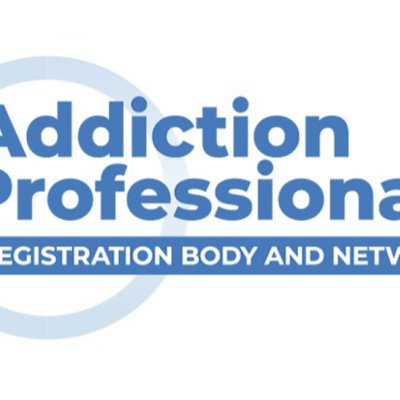It is vital that we prepare ourselves to understand not just our own mind, emotions, and behaviors, but that of our family, friends, staff, and colleagues to better equip ourselves for supporting others during this time and when we emerge on the other side.
hashtag#mentalhealth hashtag#wellness hashtag#wellbeing hashtag#depression hashtag#anxiety hashtag#mentalwellbeing hashtag#health hashtag#mentalhealthsupport hashtag#wellbeingintheworkplace hashtag#wellbeingatwork hashtag#mentalwellness hashtag#livingwell hashtag#supportduringchallengingtimes hashtag#makingtimeformentalhealth hashtag#mentalwellbeing hashtag#mentalwellness hashtag#mind
Returning to work can be hard at the best of times after a break or even the weekend, but the impact of the pandemic that we are faced with will place an additional impact on this for all areas.
Some may have already been facing significant mild mental ill health before the outbreak and this will have had a detrimental effect on their well-being. Even those who felt that their Mental Wellbeing was good, may now face additional challenges.
Throughout this period everyone will have felt significant psychological impacts, whether they have been at work throughout in key roles or in isolation. It has been widely shown that isolation and disconnection place a significant risk to our mental health and so the sudden confinement, whether individuals have been able to work from home or not will have had its effect on all.
The stress of unpredictability and uncertainty in the present climate in relation to all areas of our social, psychological and physiological lives will have taken its toll (Bo et al., 2020). Life’s challenges and any stresses can trigger common mental health disorders, such as Anxiety and Depression (Dar, Iqbal & Mushtaq 2017).
The emotions that many will have faced will range from worry, fear, uncertainty, trauma, and grief. The reality is that when we emerge from this many will have felt a fear of death, loneliness and even anger since living in quarantine and restriction (Xiang et al., 2020) Through the loss of face to face and social intervention for any given period of time, many will have faced an adjustment disorder, depression and some even stigmatized or socially excluded (Zhang, Wu, Zhao, & Zhang, 2020).
We cannot, therefore, ignore mental health and the imperative need following this for a dynamic psychological crisis intervention to support the epidemic both during and following. This will indeed also apply to those at the frontline of support. We have faced outbreaks such as this before with HIV/ Aids, Several SARs and Influenza outbreaks and Ebola, however not to this scale and severity of movement restriction.
Further research from Dar, Iqbal, & Mushtaq, (2017) highlight a correlation to the psychological link of intolerance to uncertainty with anxiety and depression. This research provides a link of worry to Generalised Anxiety Disorder (GAD). Intolerance to uncertainty is defined as “a cognitive bias that affects how a person perceives, interprets and responds to uncertain situations on a cognitive, emotional and behavioral level” (Dugas, Buhr, & Ladouceur, 2004). Under these circumstances, uncertainty is viewed a necessary to be avoided due to the stress and frustration that it brings. As a person who finds this psychologically challenging, as their everyday life fills with uncertainties they begin to find numerous reasons to worry.
Clearly, as this reflects, many will have significant reactions to the adverse times, and it is vital that this is acknowledged and addressed. Some may have been able to work from home, whilst others will have financial concerns and may have been impacted directly from knowing someone or being affected themselves. Ultimately the full impact and extent of harm from the isolation on our mental health will long be unknown, much will depend on the length of our restriction. Some societies will be more adept to deal with the impending Mental Health Crisis, where conditions such as Agoraphobia and Post Traumatic Stress Disorder (PTSD) have already been reported as an impact in Wuhan, China where the pandemic broke out.
With an NHS already challenged and no doubt an economy struggling, supporting Mental Health in other areas of our lives and seeking additional support will become ever-increasingly important and vital to us as individuals, employers, business owners, and parents.
25thhourltd.com / 07792 114290
admin@25thhourltd.com
Dar, K. A., Iqbal, N., & Mushtaq, A. (2017). Intolerance of uncertainty, depression, and anxiety: Examining the indirect and moderating effects of worry. Asian journal of psychiatry, 29, 129-133.
Dugas, M. J., Buhr, K. R. I. S. T. I. N., & Ladouceur, R. (2004). The role of intolerance of uncertainty in etiology and maintenance. Generalized anxiety disorder: Advances in research and practice, 143-163.
Xiang, Y. T., Yang, Y., Li, W., Zhang, L., Zhang, Q., Cheung, T., & Ng, C. H. (2020). Timely mental health care for the 2019 novel coronavirus outbreak is urgently needed. The Lancet Psychiatry, 7(3), 228-229.
Xu, B., Kraemer, M. U., Gutierrez, B., Mekaru, S., Sewalk, K., Loskill, A., ... & Li, S. (2020). Open access epidemiological data from the COVID-19 outbreak. The Lancet Infectious Diseases.
Zandifar, A. ( 1 ), & Badrfam, R. ( 2 ). (n.d.). Iranian mental health during the COVID-19 epidemic. Asian Journal of Psychiatry, 51. https://doi-org.liverpool.idm.oclc.org/10.1016/j.ajp.2020.101990
Zhang, J., Wu, W., Zhao, X., & Zhang, W. (2020). Recommended psychological crisis intervention response to the 2019 novel coronavirus pneumonia outbreak in China: a model of West China Hospital. Precision Clinical Medicine, 3(1), 3-8.



